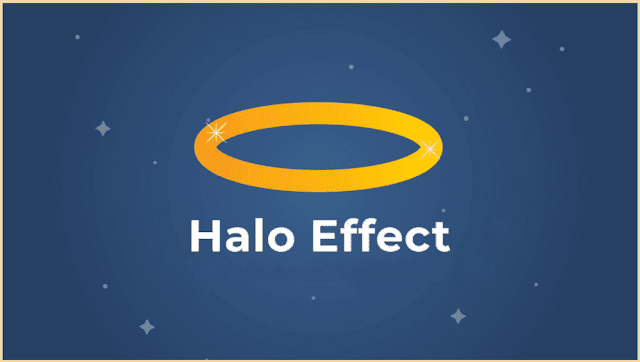The phenomenon of the halo effect explains why when we like someone at first sight, we tend to believe that they possess other virtues as well. It basically refers to the cognitive bias that occupies an individual, who, having a positive opinion about one characteristic of another person or product, tends to generalize this opinion to other characteristics. As a result, many times we end up making irrational decisions.
For example, we consider someone who is good at math to be good at other subjects as well, a product that comes from a specific country (e.g. made in Japan) as high-quality, someone who is attractive (or has a specific origin or color) to have other virtues as well (e.g. sociable, courteous - note: attractive individuals working in customer service received higher ratings from customers compared to their colleagues), someone dressed in shabby clothes to be poor, maybe even homeless, etc.
The phenomenon traces its origins back to 1920 when Edward Thorndike studied the behavior of army superiors towards their subordinates. Thorndike found that high ratings on one question correlated with high ratings on other characteristics, while negative assessments of a particular question also led to lower ratings of other characteristics.
For example, many actors and athletes, capitalizing on the halo effect, have been elected as politicians, cashing in on the publicity and fame they gained in their field (although they usually fail in their new position). It has also been observed that often, business executives may show bias during the evaluation of a candidate (in the interview process), as they overestimate certain characteristics while underestimating others.
The halo effect confirms the popular saying that "the first impression counts," something that naturally applies not only to individuals but also to products and generally to marketing, branding, and advertising. For decades, it has been common practice for famous and attractive actors, athletes, and influencers to advertise products and services (e.g. a travel blogger promoting a hotel). The logic behind this practice is very simple: the successful actor or celebrity knows how to choose "successful" goods.
Businesses, moreover, are aware that the halo effect applies to sales as well as to strengthening the brand. This happens when the initial product is so successful (e.g., it has unique characteristics) that it somehow carries over to the rest (this is also the aim of family branding). At the same time, according to research, foods labeled as organic receive better ratings, with consumers willing to pay more.
The first impression, therefore, is very important, as the consumer forms an image (which may be wrong - "never judge a book by its cover") of our business. For example, a rude employee can do great damage to the company's image. As Shep Hyken said, "To the customer you are the company."
According to the Wall Street Journal, it is no coincidence that "top hotels want to charm customers (or at least not disappoint them) in the first crucial 15 minutes of their stay." As a high-ranking executive in the hospitality industry once said, "If you lose them at the beginning, it is very hard to recover. In their mind they’ve decided it is a bad hotel."
Also important, when talking about first impressions, is the telephone communication between customer and business, website design (we often judge the level of services provided by how updated and user-friendly a website is), the publication of reviews through the website and beyond, high Google ranking (many believe that businesses appearing high are more reliable), even the parking space, how well-maintained the garden is, the polite welcome, cleanliness in the premises, etc.
